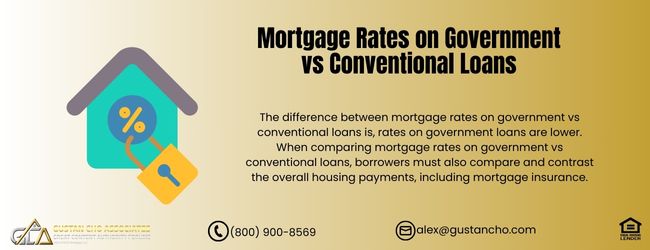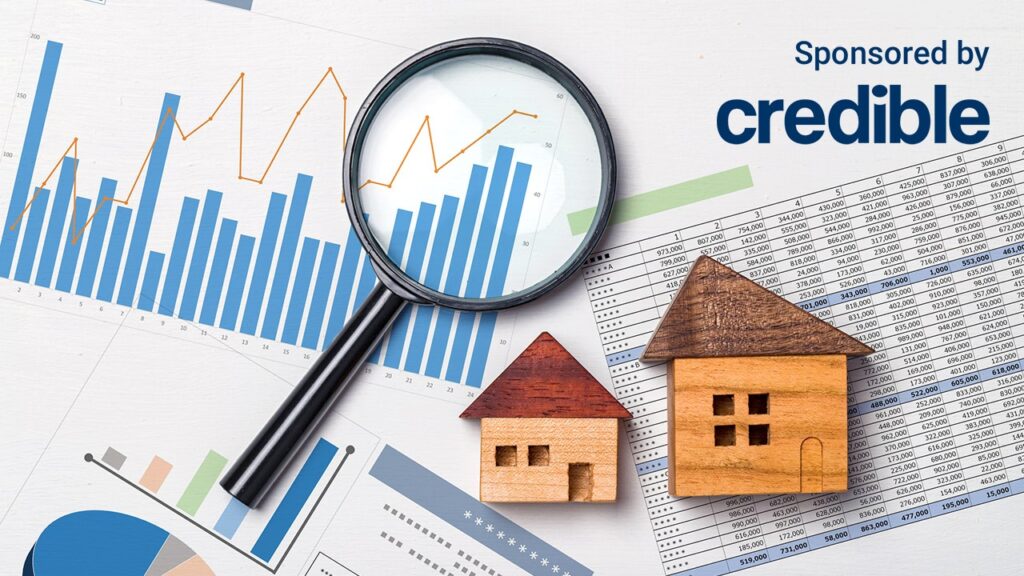Getting Approved For VA Loans With Bad Credit

This guide covers whether I qualify for VA loans with bad credit. One of the major hurdles for veterans trying to qualify for a VA loan is that they have collections and charge-off accounts. VA loans are the nation’s best loan program for a home purchase. VA loans do not require a down payment, have no mortgage insurance, have minimum credit scores, have maximum debt-to-income ratio caps, or have maximum loan limits. John Strange, a senior mortgage loan originator at GCA Forums Mortgage Group, says the following about VA loans with bad credit:
VA loans can be a beacon of hope for veterans seeking to achieve the American dream of homeownership. These mortgage options, backed by the U.S. Department of Veterans Affairs (VA), offer numerous advantages, including competitive interest rates, no down payment requirements, and lenient credit standards.
Some veterans may worry that their bad credit history could hinder their chances of securing a VA loan. In this article, we’ll explore how VA loans work for individuals with bad credit and offer actionable tips to improve your eligibility and increase your chances of approval. In the following paragraphs, we will cover getting approved for VA loans with bad credit.
Understanding VA Loans With Bad Credit and Low Credit Scores
VA loans are designed to help veterans, active-duty service members, and eligible surviving spouses access affordable home financing. Unlike conventional loans, VA loans do not require private mortgage insurance (PMI) and typically feature more flexible credit guidelines. Dustin Dumestre, an associate contributing editor at GCA Forums News, says the following about getting approved for VA loans with bad credit:
While the Department of Veterans Affairs does not officially set a minimum credit score requirement, most VA lenders impose credit standards. The credit score set by each lender on VA loans is called a lender overlay.
Generally, most lenders consider a FICO credit score of 620 or higher the minimum for VA loan eligibility. However, veterans with bad credit scores below 620 need not despair, as there are still viable paths to securing a VA loan.
Bad Credit? You May Still Qualify for a VA Loan!
Contact us today to find out how we can help you qualify for a VA loan despite bad credit.
Securing VA Loans With Bad Credit: The Ultimate Guide
VA loans have many advantages for veterans, active-duty service members, and qualifying surviving spouses, including no down payment, no PMI, and favorable interest rates. One of the most critical concerns people tend to have is, “Can I get a VA loan with bad credit?” The answer is yes, but it’s not easy. In this guide, I will walk you through the approval process, providing useful steps, crucial pointers, and tips on improving your chances.
What You Need To Know About VA Loans with Bad Credit
The US Department of Veterans Affairs sponsors VA Loans, which are strategically tailored to aid qualifying borrowers in attaining home ownership. Unlike conventional loans, VA loans are less strict about the borrower’s credit score as they have more lenient policies. However, like all other loans, they still check for creditworthiness. Below are some key points to take away:
No Minimum Credit Score Set By The VA
The VA does not set a minimum designated credit score, meaning borrowers with lower scores can use their lenders’ plans.
- Lender Set Minimums: Like most VA lenders, some impose a credit score limit, usually between 580 and 620.
- Some niche lenders go as low as 500, but the terms won’t be ideal.
- We evaluate the credit score, income stability, payment history, and debt-to-income (DTI) ratio holistically.
- While bad credit—typically a FICO score below 620—can complicate things, it isn’t an outright dealbreaker.
Here are some steps to shift the odds in your favor.
Will VA Give VA Loans With Bad Credit
The Veterans Affairs Administration is very lenient with bad credit on VA loans. The Department of Veterans Affairs understands that veterans generally have lower credit scores and inferior credit profiles than their civilian counterparts due to service-related duties.
For example, it is difficult to pay your bills on time if you are deployed. Military personnel often move with their families from one part of the country to another, and veterans often move overseas. You can get a VA home loan with bad credit.
The key is prior bad credit. You must not pay outstanding collections and charge-offs to qualify for a VA loan. Veterans can qualify for VA loans with bad credit, with credit scores down to 500 FICO and high debt-to-income ratios. However, you need timely payments in the past 12 months to qualify for a VA loan.
Steps to Improve Eligibility for VA Loans with Bad Credit
Check and Correct Credit Reports: Start by obtaining free copies of your credit reports from the major credit bureaus (Equifax, Experian, and TransUnion). Please review them thoroughly for errors, such as inaccurate accounts, late payments, or fraudulent activity. If you notice any discrepancies, please address them to enhance your credit score.
Build a Positive Payment History
Consistently making on-time payments on all your debts is crucial to improving your credit standing. Set up reminders or automatic payments to ensure you never miss a due date. Reducing your overall debt load can positively impact your credit score. Focus on paying off high-interest debts or those close to their credit limits. Alex Carlucci, a senior mortgage loan originator at GCA Forums Mortgage Group, says the following about VA loans with bad credit:
Seek out VA loan specialists or lenders experienced in working with veterans with bad credit. These professionals can offer guidance tailored to your unique situation and help you find solutions to overcome credit obstacles.
You can obtain pre-approval for a VA loan to better understand your borrowing capacity and the interest rate for which you might qualify. Pre-approval shows sellers that you are a serious and capable buyer. Even with inadequate credit, showing a stable income and employment history can bolster your case for loan approval. Provide supporting documents like pay stubs, tax returns, and employment verification.
VA Loans With Bad Credit Down Payment Guidelines
While VA loans do not require a down payment, offering one can demonstrate your commitment and improve your negotiating position with lenders. Lenders will offer veterans 100% financing on VA loans. Active-duty and retired veterans and eligible surviving spouses of deceased veterans in the line of duty can pursue their homeownership dreams through VA loans.
The key is understanding the credit requirements, taking proactive steps to improve credit scores, and working with experienced VA loan specialists.
VA loans offer a valuable opportunity for those who have served their country to secure affordable and accessible home financing. By demonstrating financial responsibility and following the tips outlined in this article, veterans with bad credit can increase their eligibility and be on their way to owning a place they can call home. Remember, consult experts in the field to get personalized advice that aligns with your financial situation.
VA Loan with Bad Credit? We Can Help You Get Approved!
Contact us now to discuss how we can help you secure your VA loan with flexible terms and competitive rates.
Step 1: Assess Your Credit Situation
Have a clear strategy for fixing your VA loan applications by revising your credit profile first.
- Check Your Credit Report: You can request free Equifax, Experian, and TransUnion reports on AnnualCreditReport.com.
- Examine your file for errors, such as late payments or settled balances in your accounts, and resolve any discrepancies.
- Know Your Credit Score: Your bank may offer services that estimate your score alongside the bureau providers.
- If you are under 620, some lenders focus on lower scores.
- Identify Negative Marks: Track late payments, collection notices, bankruptcies, or foreclosures.
- Often, your profile may also have the age of these marks.
- Newer issues generally tend to weigh more than older ones.
- Understanding credit helps resolve many issues, giving borrowers a competitive advantage with lenders.
Step 2: Optimize Your Credit Profile Before the Application
Although you may be eligible for a loan with a lower score, improving your credit will enhance the chances of approval and secure better terms. The following are some steps you can take:
- Pay Down Debt: Try maintaining a 30% or lower ratio on your credit utilization ratio.
- For instance, if you have a $10,000 credit limit, aim to keep balances under $3,000.
- Make Payments on Time: Ensure that you consistently meet your payment schedules over a 12-month period.
- The reliability will showcase financial responsibility.
- Please consider setting up autopay to ensure you never miss a payment deadline.
- Charge-Off and Collection Accounts: Contact creditors to settle or negotiate a payment strategy for any outstanding collections.
- Some lenders might need pre-approval for settled collections.
- No New Credit Requests: New credit cards and loans will lower your score and increase lenders’ perception of your risk.
- Wait until your VA loan has been approved.
- Every effort counts, and starting extensively motivates new work well before time is beneficial, so begin early for the best results, however minor.
Step 3: Search for a VA-Approved Lender Who Accepts Bad Credit
Different lenders operate according to different terms and conditions; therefore, searching is essential. Here are the steps you can take to find a suitable lender:
- Investigate Loan Providers: Search for experienced VA-approved lenders for low-credit-score loans.
- Remember that online lenders, credit unions, and local banks can be more helpful than larger institutions.
- Inquire About Overlays: Every lender has different borrowing policies.
- Request the minimum credit score, debt-to-income ratio (DTI), and bankruptcy or foreclosure policies compared to other VA guidelines.
- Check Specialized Lenders: A few lenders specialize in VA loans for borrowers with credit score difficulties.
- Such lenders might have programs for borrowers with a credit score 500, but the interest rates will be higher.
- A skilled loan officer who is willing to walk alongside you through the process will best support and streamline your application.
Step 4: Strengthen Other Aspects of Your Application
Since credit is just one factor, compensating other sections can supplement a low score:
- Improve Your DTI Ratio: Your DTI or debt-to-income ratio, should be lower than 41%.
- It’s defined as monthly debt payments divided by gross monthly income.
- For instance, if you earn $5,000 monthly, your debt payments should be less than $2,050.
- Side hustles or clearing out small debts can improve these figures.
- Demonstrate Income Stability: Income stability, spanning two years, is another common criterion lenders look for.
- Receipts and documents such as W-2s, tax returns, or even military earnings statements can serve as reliable sources.
- Residual Income: This is significant leftover income after major expenses.
- Meeting VA residual income benchmarks for your area can vastly benefit your application, especially when considered alongside other family income factors.
- You can also add a spouse or another veteran to the application as a co-borrower.
- Their stronger credit improves the application but comes at the cost of a shared loan obligation.
- A well-rounded application can compensate for credit weaknesses.
Step 5. Fix Past Financial Problems
If you’re facing more severe financial problems, such as bankruptcies or foreclosures, you must pay extra attention to this section.
- Bankruptcy: With Chapter 7 bankruptcy, most lenders impose a two-year wait period after the discharge date.
- Chapter 13 might offer some relief, where approval is possible after the first year of consistent payments and post-court sanction.
- Foreclosure: Short sales and foreclosures usually have a two- to three-year wait period.
- That said, some lenders offer shorter wait periods if positive counterbalancing factors are present (for example, high residual income).
- VA Loan Foreclosure: If a VA loan has previously been defaulted on, repayment to VA or wait periods/qualifying timelines will lengthen depending on the lender’s policies.
- Ensure transparency regarding prior concerns with the lender and offer documentation that shows resolutions or steps taken to resolve issues.
Step 6. Collect Necessary Documents
Submitting the COE, along with the other required documents, is less tedious for those with a strong credit history than for those with poor credit. The documents for those with poor credit history are listed below.
- Certificate of Eligibility (COE): The document confirms the client’s eligibility for a VA loan and can be accessed via the VA’s eBenefits portal.
- Lenders can also retrieve it.
- Income Documentation: Provide tax returns, pay stubs, W-2s, or any other document proving income for the past two years.
- Bank Statements: Savings accounts, checking accounts, or other documents showing account balances and monetary stability can also be used as evidence of financial stability.
- Explanation Letters: If needed, write credit issue explanation letters (e.g., medical emergencies or job loss) and describe their resolution in clear steps.
- Having documentation ready portrays you in a prepared light and accelerates the process with the lenders.
Step 7: Collaborate With a VA Loan Specialist
Having a dedicated loan officer for VA loans makes a lot of difference, particularly for borrowers with bad credit. They can:
- Lack the bulk of credit standards when lending.
- This guide will help you understandthe VA rules and lender overlays.
- Consider requesting manual Consider requesting manual underwriting if your application qualifies for automated systems.
- ation provided by manual underwriting can benefit applicants with bad credit.
Step 8: Expect to Spend More
Lenders will try to mitigate risk by charging higher fees and interest to borrowers with bad credit. With that in mind, here’s what to look out for:
- Increased Fees: For borrow
- Increased Fees: Borrowers with bad credit will see a monthly increase in the starting rate, further straining their finances.
- The G fee (1.25%–3.3% of the total loan, determined by status and loan type) is mandatory for all VA loans.
- Though this fee can be added to the loan, it raises the overall cost.
Closing Costs
- Estimate closing costs as 1%–5% of the loan amount, but sellers can pay up to 4% concessions.
- Lenders should provide a loan estimate to compare and negotiate their costs.
Tips for Success
- Start Early: Improvement in credit scores and collection of documentation might take many months, so start well ahead of your intended purchase date.
- Get Pre-Approved: Pre-approval signals to sellers that you are a genuine buyer and helps set expectations on your budget.
- Consult a Housing Counselor: Eligible HUD housing counselors can provide low- or no-cost advice on credit issues and homebuying help.
- Stay Patient: If no initial approval is granted, focus on rebuilding credit and wait a few months before reapplying.
Common Pitfalls to Avoid
Applying with several lenders simultaneously can lead to a higher number of hard inquiries, which may negatively impact your credit score. You can be strategic by applying with one or two lenders at a time.
- Ignoring Lender Overlays: It can be very costly to assume that all VA lenders work from the same guidelines. Please always ask about unique standards.
- Neglecting to Describe Positive Attributes: Failing to emphasize stable employment or savings diminishes the strength of your application.
- Getting a VA loan with bad credit is hard, but it can be done with work and determination.
- Overcoming credit barriers includes understanding your credit history, improving your finances, picking the appropriate lender, and bolstering your application.
- Begin as early as possible, collaborate with experts, and take advantage of the VA loan’s benefits to make your dream home a reality.
If you want more details about VA loans, visit the US Department of Veterans Affairs website or contact a VA-approved lender today.
Bad Credit Holding You Back? VA Loans Offer More Flexibility!
Reach out now to see how we can help you get approved.






Responses